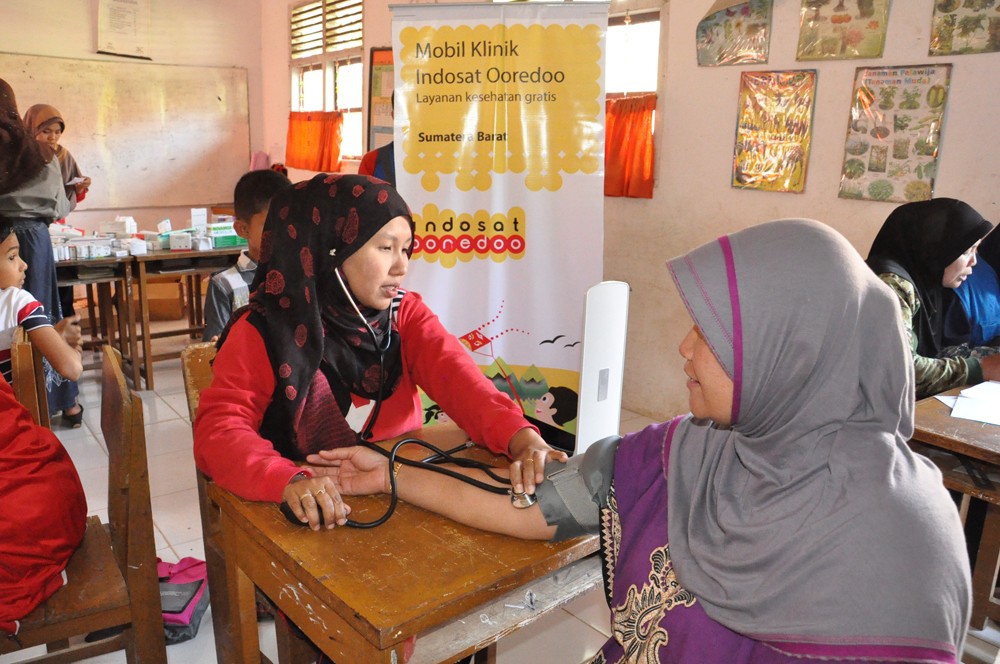Disadvantaged regions to get more medical specialists
Change Size
 A mobile clinic doctor checks the blood pressure of a resident in Koto Tangah district of West Sumatra. The program is part of Indosat Ooredoo’s commitment to improving community health services. (Courtesy of Indosat Ooredoo/-)
A mobile clinic doctor checks the blood pressure of a resident in Koto Tangah district of West Sumatra. The program is part of Indosat Ooredoo’s commitment to improving community health services. (Courtesy of Indosat Ooredoo/-)
S
tarting this year, specialist doctors upon graduates will be assigned to underdeveloped regions of the country, where medical specialists are in short supply. This rule will apply first in the fields of pediatrics, obstetrics/ gynecology, internal medicine, general surgery and anesthetics.
On Jan. 12, President Joko “Jokowi” Widodo signed Presidential Regulation (Perpres) No. 4/2017 on specialist doctors’ mandatory work, which stipulates that any specialist doctor graduating from a public Indonesian university or from an overseas university using a government scholarship must participate in the work program.
Those paying for medical degrees with their own money will only be required to spend one year working in places needing specialists, while those who receive government scholarships will be required to work more than a year, depending on the need, said the Health Ministry’s head of human resources development, Usman Sumantri.
The program is deemed necessary as many regions lack specialist doctors, the majority of whom are concentrated in Jakarta, Yogyakarta, North Sulawesi and Bali.
The compulsory posting is applied in the aforementioned fields first because they are seen as fields that could save lives but are still lacking specialist doctors.
In 2017 alone, the country is in need of 460 more pediatricians, 355 obstetricians and gynecologists, 388 internists, 546 surgeons and 172 anesthesiologists.
“This year we are targeting to post between 1,000 and 1,250 specialist doctors. Ninety hospitals are ready to receive the doctors in this early stage of the program,” Usman said. “In the first batch, 90 specialist doctors will be dispatched in March.” (evi)









